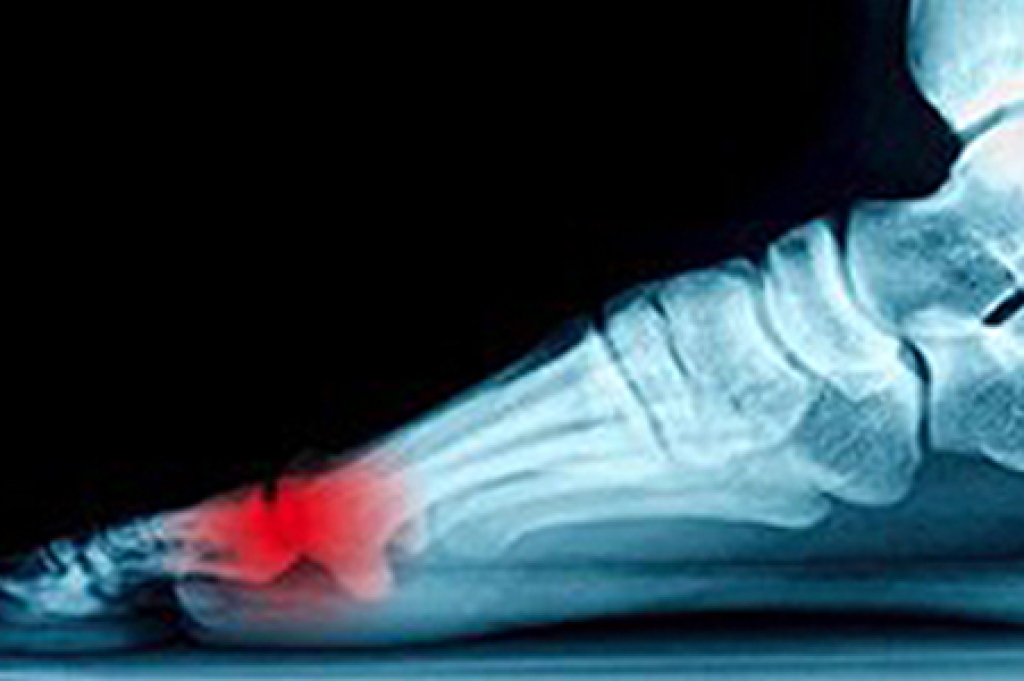
Sesamoiditis is the inflammation of the small sesamoid bones beneath the big toe joint. It is often caused by repetitive pressure or overuse. This condition is common in runners, dancers, and those with high arches or who wear improper footwear. Symptoms include pain under the big toe, swelling, and difficulty pushing off when walking. Arthroscopic treatment is a minimally invasive procedure where small instruments and a camera are used to examine and treat joint problems, reducing recovery time and discomfort. A podiatrist can diagnose sesamoiditis through examination and imaging, offering both conservative care and advanced procedures, if needed. If you feel persistent pain in this part of your foot, it is suggested that you visit a podiatrist for a proper diagnosis and treatment.
Sesamoiditis is an unpleasant foot condition characterized by pain in the balls of the feet. If you think you’re struggling with sesamoiditis, contact one of our podiatrists of Carolina Foot & Ankle Specialists. Our doctors will treat your condition thoroughly and effectively.
Sesamoiditis
Sesamoiditis is a condition of the foot that affects the ball of the foot. It is more common in younger people than it is in older people. It can also occur with people who have begun a new exercise program, since their bodies are adjusting to the new physical regimen. Pain may also be caused by the inflammation of tendons surrounding the bones. It is important to seek treatment in its early stages because if you ignore the pain, this condition can lead to more serious problems such as severe irritation and bone fractures.
Causes of Sesamoiditis
- Sudden increase in activity
- Increase in physically strenuous movement without a proper warm up or build up
- Foot structure: those who have smaller, bonier feet or those with a high arch may be more susceptible
Treatment for sesamoiditis is non-invasive and simple. Doctors may recommend a strict rest period where the patient forgoes most physical activity. This will help give the patient time to heal their feet through limited activity. For serious cases, it is best to speak with your doctor to determine a treatment option that will help your specific needs.
If you have any questions, please feel free to contact our offices located in Mount Pleasant and Charleston, SC . We offer the newest diagnostic and treatment technologies for all your foot care needs.






